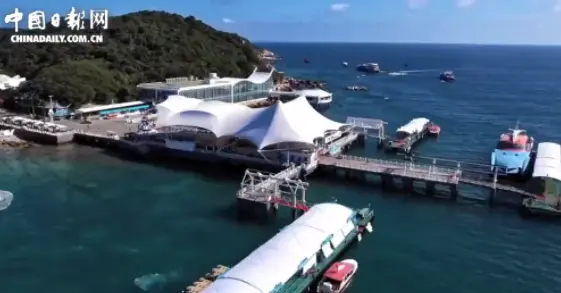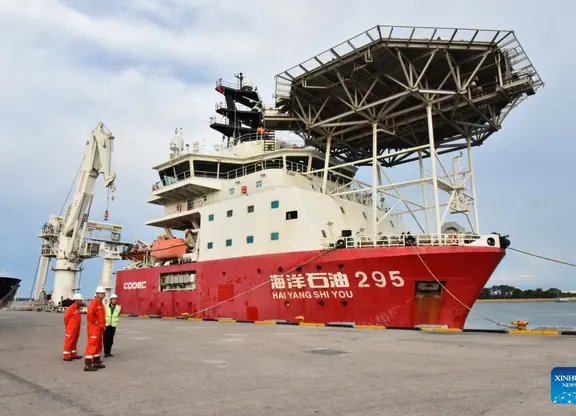A super typhoon with destructive winds of more than 265 kilometers an hour, or 165 mph, was heading towards the Philippines, Taiwan and Hong Kong on Friday.
Stronger than a Category 5 Atlantic hurricane, it is forecast to hit thenorthern Philippineson Saturday and then move on to Taiwan and Hong Kong before sweeping across southern China.
In a statement released by
In a statement released bythe United Nations Global Disaster Alert and Coordination System, the super typhoon known as Mangkhut could affect up to 43.4 million people before it dissipates.
Already the Hong Kong Observatory has warned that it could be more powerful than Typhoon Hato, which left a trail of destruction through Hong Kong and Macau in August last year.
Projections show that Mangkhut will enter the South China Sea on Saturday and move quickly towards the Guangdong coastline, gaining strength as it barrels “close” to Hong Kong.
“It could be very close,” Queenie Lam Ching-chi, a senior scientific officer at theHong Kong Observatory, said.
‘Great danger’
“It has a large circulation with intense winds, so even if it is not a direct hit … it can constitute a great danger to Hong Kong,” she added.
The Special Administrative Region’s government has put together contingency measures, while rail networks and airlines have rolled out plans to cope with the situation.
“Representatives from relevant bureaus and departments also reported their preparatory work and contingency plans, particularly on measures in the prevention and handling of flooding, backflow of seawater and emergency plans for high-risk locations,”the Hong Kong governmentrevealed in a statement.
Major airlines such as Cathay Pacific, Cathay Dragon, Hong Kong Airlines and HK Express have announced they will waive rebooking or re-routing charges if the super typhoon results in canceled flights.
Hong Kong’s International Airport is also preparing for the worst.
“The airport was built and designed according to the relevant government standards and guidelines,” a spokesman told the South China Morning Post. “Consideration has been given to the geography, and the risks of flooding due to the extreme tidal range, and other adverse situations.”
In Macau,the local governmentwarned that Mangkhut could rivalTyphoon Hato, which killed 10 people and injured a further 244, as well as causing massive flooding.
On Wednesday, residents stripped shelves of bottled water and stocked up on food as queues appeared outside supermarkets and bakeries.
“Secretary for Security Wong Sio Chak convened an emergency meeting with the Civil Protection Department to prepare for the typhoon,”a government statementsaid.
In Taiwan, meteorologists were expecting Mangkhut to crash into the southern parts of the island as early as Friday night with Premier Lai Ching-te instructing local officials to activate crisis management systems.
“Forced evacuations would be conducted in the event of serious flooding and landslides,” Kolas Yotaka, a cabinet spokeswoman, said.
The Taipei government has also put emergency services on alert, especially after western parts of Japan were devastated last week by the deadly Typhoon Jebi.
As for the economic impact on regional economies, it could be immense. Back in 2013, Typhoon Haiyan made landfall in Tacloban, central Philippines, killing more than 6,000 people and wrecking homes and businesses.
Reconstruction costs were around US$6 billion, according to government statistics.
“An example [was] the destruction caused by Typhoon Haiyan [which resulted] in a total economic loss of around $10 billion,” anAsian Development Bank reportstated in 2016. “The strongest tropical cyclone to ever hit the country left 6,300 people dead and damaged over 1 million houses.”
Last year, the economic consequences of Typhoon Hato, the worst storm to hit Hong Kong in more than 50 years, was around $1 billion, theStrategic Risk websiteconfirmed. In Macao,the figure was around$1.4 billion, the government later announced.
“It was the worst natural disaster Macau had encountered in more than half a century,” Fernando Chui Sai-on, the chief executive of Macau said at the time.
WithTyphoonMangkhuton the horizon andHurricane Florencechurning towards the east coast of the United States,the Washington Post noted: “Seemingly overnight, the oceans are exploding with tropical cyclone activity.”
The next 72 hours will show just how devastating they are.
(ASIA TIMES)
 简体中文
简体中文






